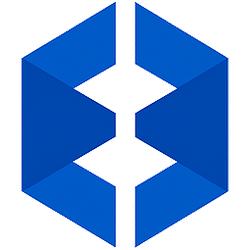Dive Brief:
-
Target said that it has pulled all products produced by Welspun Global Brands after discovering the Indian textile company substituted non-Egyptian cotton for what was supposed to be 500-thread-count Egyptian cotton sheets sold under Target's Fieldcrest label.
-
The substitution was made in sheets produced by Welspun between August 2014 and July 2016; other vendors producing sheets for the Fieldcrest brand have not made such substitutions, Target said. The retailer has contacted all REDcard and Target.com customers who bought the sheets to offer full refunds. Any other customers who bought the sheets can contact Target to request a refund in the form a gift card.
-
Target has terminated its relationship with Welspun for violating its code of conduct and standards of vendor engagement. Wal-Mart Stores is now reviewing Welspun's cotton certification records as well; a spokesperson told Bloomberg the retailer will “handle it appropriately" if any discrepancies are discovered.
Dive Insight:
Target is one of Welspun’s largest customers, accounting for 10% of its sales, according to the Wall Street Journal, and the company’s shares went into a tailspin after the news, declining 20% Monday morning. Some two-thirds of Welspun’s $878 million in sales is from American retailers, including Wal-Mart, Bed Bath & Beyond, J.C. Penney and Macy’s, according to Mumbai-based brokerage Edelweiss Securities, the Journal said.
In fact, according to Welspun’s own annual report, “Every fifth towel sold in the U.S. is manufactured by Welspun India.” With a distribution presence in more than 50 countries, [Welspun] is also the largest exporter of home textile products from India,” the report reads. “During FY16 we also became the largest exporter of bed linen from India.”
That makes Target’s move—and Wal-Mart's ongoing probe—a massive problem for the company. Welspun has commissioned an independent auditor to investigate its supply systems and processes: “This is an issue of highest priority for us and we will take all necessary steps to address it,” the firm told the Wall Street Journal.
“This is a serious issue," S.P. Tulsian, who runs investment advisory firm sptulsian.com, told Bloomberg. "On one hand [Welspun] has been talking of $2 billion top-line by 2020 and on the other hand the U.S. is a very big market for them. Now that goal of $2 billion revenue will be difficult to meet."
Egyptian cotton is prized for its high quality, and any dilution of the term is a threat to brands. It’s a problem similar to counterfeiting issues faced by Alibaba’s Chinese marketplaces as well as Amazon, eBay, Etsy and other marketplaces that feature a number of goods sourced from a wide variety of sellers and manufacturers around the globe.









